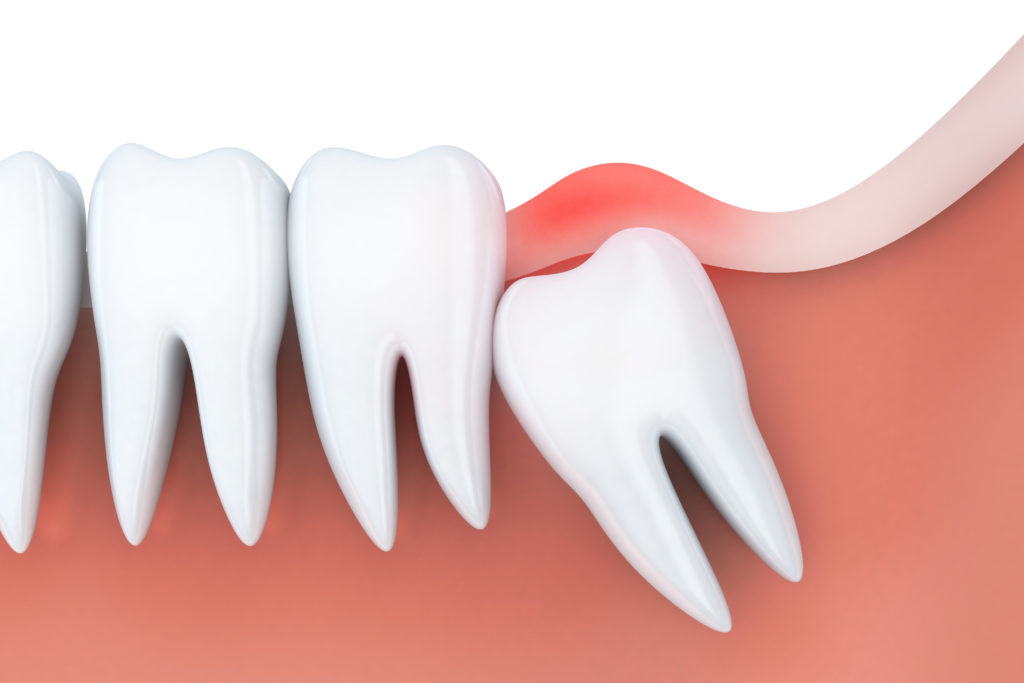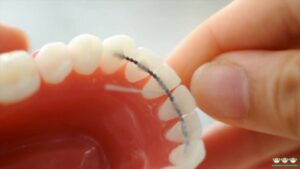Are you feeling extreme jaw pain and tender gums? Or are you feeling difficulties while eating or opening your mouth? If yes, then it’s a thing to become concerned about. Yes, these symptoms may indicate a wisdom tooth, and it can come in at any age between 17 to 25. If you are dealing with the same, you must know some facts about wisdom teeth. This article will help you to know some essential factors on wisdom teeth. Alongside, a thorough reading of this article can help you to take care of your wisdom tooth properly. So, let’s learn ‘how long does it take for wisdom teeth to come in’ and related facts.
Why do wisdom teeth exist?
Not everyone develops wisdom teeth; the wisdom tooth mainly appears due to the late eruption of molars. However, sometimes you may face these problematic situations due to improper development of jawlines. As per the opinion of the experts, the lack of vitamin K2 may hamper the development of jawlines. Vitamin K2 helps to develop the growth of the jawlines. An inappropriate presence of Vitamin K2 does not provide enough space for emerging teeth. As a result, you can face the troubles that are associated with wisdom teeth.
Note: The decreasing rate of breastfeeding and soft-based food habits of children increases the chances of an underdeveloped jaw.
How Long Does it Take for Wisdom Teeth to Come In?
It is considered one of the most common questions. However, as mentioned, a wisdom tooth may take several years to come in through the gums. But generally, the wisdom tooth erupts among the 17 to 25 age group.
Early signs of wisdom teeth
You can find several early signs of wisdom teeth, such as:
- Bleeding gums and tenderness are the early signs of wisdom teeth.
- You may feel red or swollen gums during this early stage.
- Excessive jaw pain and discomfort are the signs of wisdom teeth.
- Sometimes you may feel the bad breath and unpleasant taste in your mouth.
- If your wisdom tooth is coming in, you will feel difficulties while eating and opening the mouth.
- According to some people, they felt constant headaches due to wisdom teeth.
Why do wisdom teeth cause pain?
The pain associated with wisdom teeth appears due to several reasons. Go through the following section to know the reason for the pain.
- Partial eruption: Sometimes, the pain appears due to partial eruption of the tooth. Due to this reason, the bacteria enters under the tooth’s gum, and it causes infection, swelling, stiffness, and pain. This is the greatest reason for wisdom tooth pain.
- Impaction: As we have mentioned before, the shortage of space in the jaw prevents the complete eruption of the teeth. Due to this reason, sometimes the tooth is placed into the wrong position, and it creates pressure on the neighboring teeth. This pressure generates wisdom teeth pain. It is considered a wisdom tooth impaction.
- Tumors or cysts: The impacted wisdom tooth can cause oral tumors or cysts. If you do not start treatment within a proper time, then it can destroy the other teeth. Any formation of a tumor or cyst will cause immense pain.
When can you remove your wisdom teeth?
If your wisdom tooth has grown up on a correct alignment, then you will not require to remove your tooth. The improper alignment of the wisdom tooth might trap the tooth under the gum line of your mouth. However, this may hamper the alignments of the other teeth, or it might become the cause of oral cysts or tumors. If you are dealing with this kind of wisdom tooth issue, then we will suggest you remove your wisdom tooth by consulting a dentist.
Sometimes a wisdom tooth emerges partially; then, it will enhance the number of difficulties for maintaining oral hygiene. It also enhances the chances of oral infection. As a result, you may feel pain, swelling, and bad breath. During this situation, you must be required to remove the tooth.
Note: If you feel any kind of discomfort with your wisdom teeth, then you must consult your dentist.
How long does wisdom tooth pain last after extraction?
You may feel a certain pain after extracting your wisdom tooth. The discomfort which is associated with wisdom tooth removal may last about 2 to 7 days. However, for some people, it may take more time to get relieved. You can go back to your normal routine within 2 to 3 days after the tooth extraction.
However, the following timeline will help to get an idea about the healing process after the extraction.
- During the first 24 hours, the blood clots start to develop around the tooth extraction area. It generates a protective layer over the exposed bone and nerves. It also develops new tissues in your mouth.
- Within 2 to 3 days, the swelling level will be decreased.
- If you require stitches during the extraction treatment, then your dentist will remove those stitches within 10 to 14 days.
- After a couple of weeks, you can feel normal.
Conclusion
The entire article provides a detailed description of the factors that are associated with wisdom teeth. Hope it will help you to take care of your wisdom teeth properly. However, don’t forget to ensure immediate medical attention if you’re feeling discomfort. If you find this article helpful, then do let us know in our comment section.
SOURCES:
- Olze, A., Van Niekerk, P., Ishikawa, T., Zhu, B. L., Schulz, R., Maeda, H., & Schmeling, A. (2007). “Comparative study on the effect of ethnicity on wisdom tooth eruption”.
https://link.springer.com/article/10.1007/s00414-007-0171-9 - Friedrich, R. E., Ulbricht, C., & von Maydell, L. A. B. (2003). “The influence of wisdom tooth impaction on root formation”.
https://www.sciencedirect.com/science/article/pii/S0940960203801127 - Robinson, P. D. (1994). “The impacted lower wisdom tooth: to remove or to leave alone?”.
https://europepmc.org/article/med/7875357 - Gadiwalla, Y., Moore, R., Palmer, N., & Renton, T. (2021). “Where is the ‘wisdom’in wisdom tooth surgery? A review of national and international third molar surgery guidelines”.
https://www.sciencedirect.com/science/article/pii/S0901502720303295



